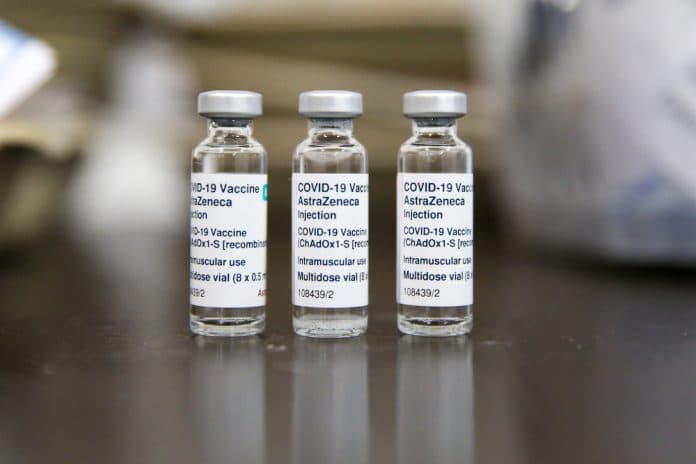
Canberrans aged between 50 and 59 have been told to temporarily hold off on booking their vaccine appointment after the Federal Government today announced new health advice recommending the AstraZeneca jab be restricted to those over 60.
Previously, AstraZeneca was recommended for those 50 and over due to the rare but serious blood clotting condition associated with the jab.
Australia’s vaccine advisory group, the Australian Technical Advisory Group on Immunisation (ATAGI), has recommended the change after a second death from the condition last week – a woman in her 50s.
ACT Chief Minister Andrew Barr said the ACT COVID-19 booking line would no longer accept bookings for the AstraZeneca jab from people aged 50-59 with ACT Health to contact people who already have an appointment at a government clinic.
“The priority over the coming days will be to reschedule these people for a Pfizer appointment,” Mr Barr said.
“If you are 50 to 59 years old and have already received your first dose of AstraZeneca without any serious adverse events, you are encouraged to attend your existing appointment for your second dose of AstraZeneca.”
Mr Barr said the Territory would be working with the Federal Government to determine vaccine supply and the capacity of the ACT’s vaccination clinics.
“We are asking any ACT resident aged 50-59 years who has not yet booked a vaccine appointment to be patient while we work through these changes.
“When we are in the position to open more appointments to this age group, we will let the community know. In the meantime, if you are aged 50-59 years, please do not contact the COVID-19 booking line.”
In a statement today, ATAGI said people who have received their first dose of AstraZeneca without any serious adverse events should go ahead and receive their second dose, even if they are under 60.
“The risks of severe outcomes with COVID-19 increase with age and are particularly high in older unvaccinated individuals.
“The benefit of vaccination in preventing COVID-19 with COVID-19 Vaccine AstraZeneca outweighs the risk of TTS in this age group and underpins its ongoing use in this age group.”
For more news:








